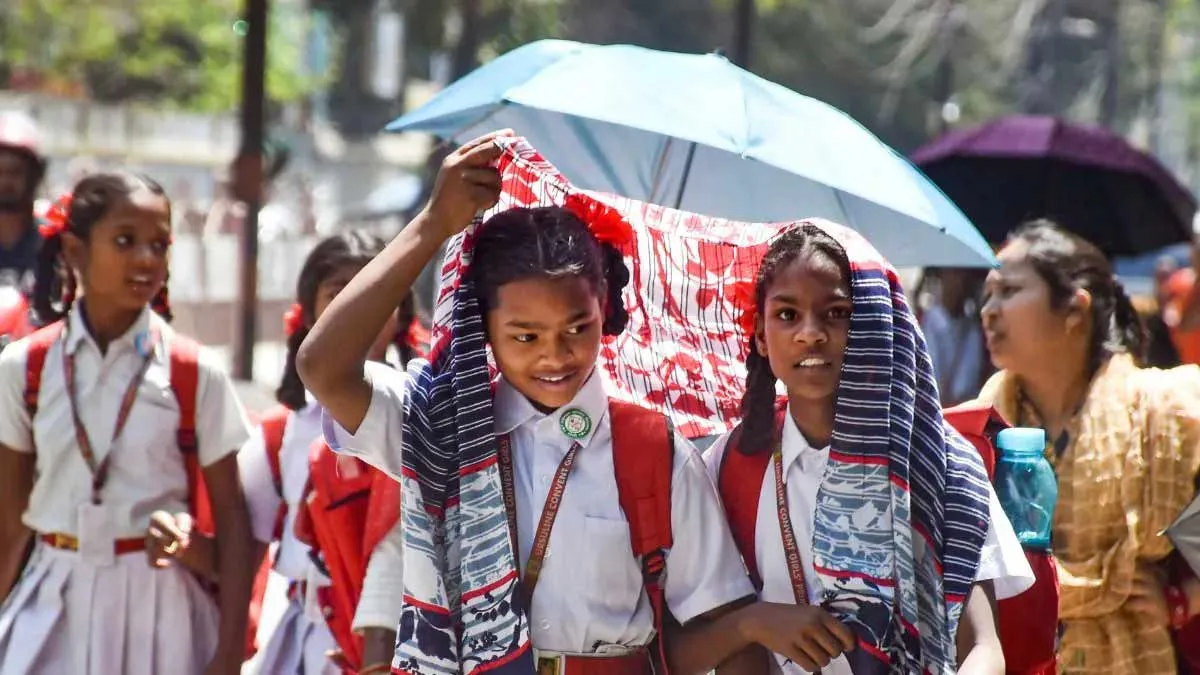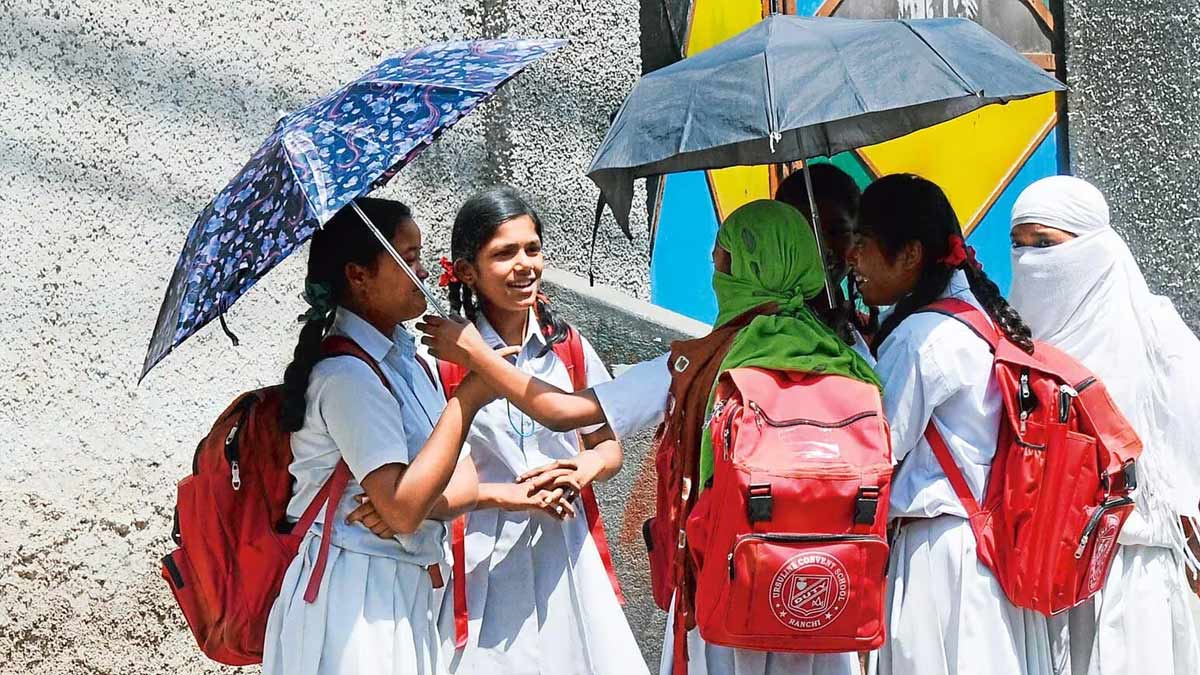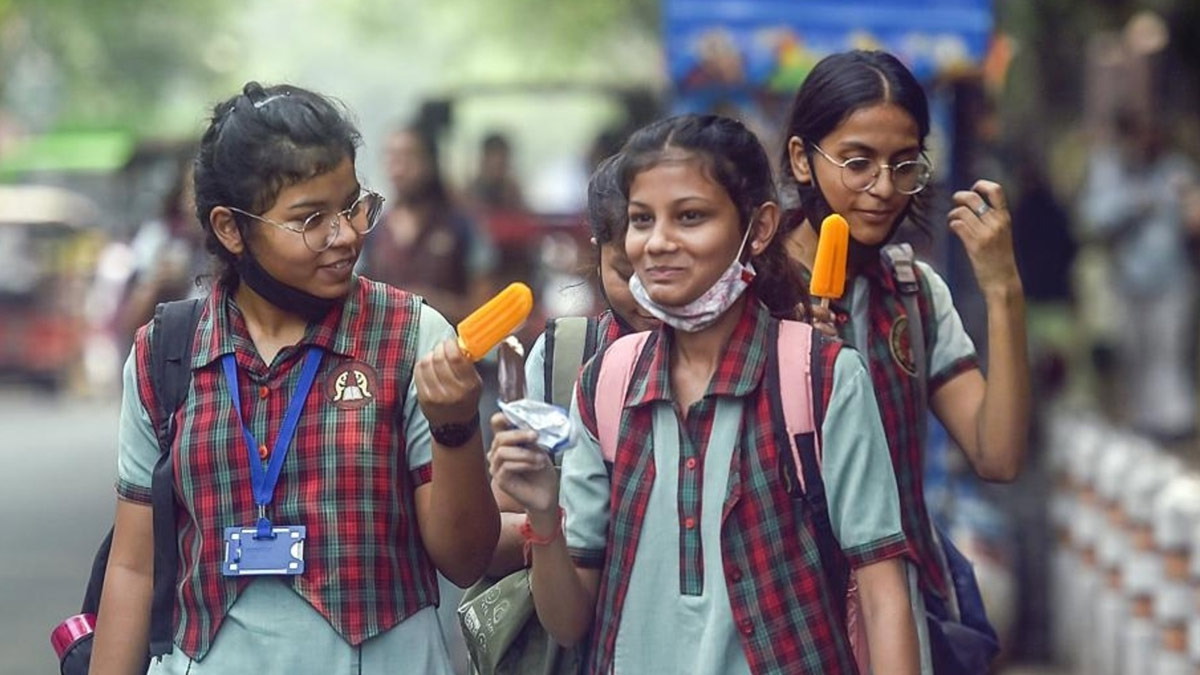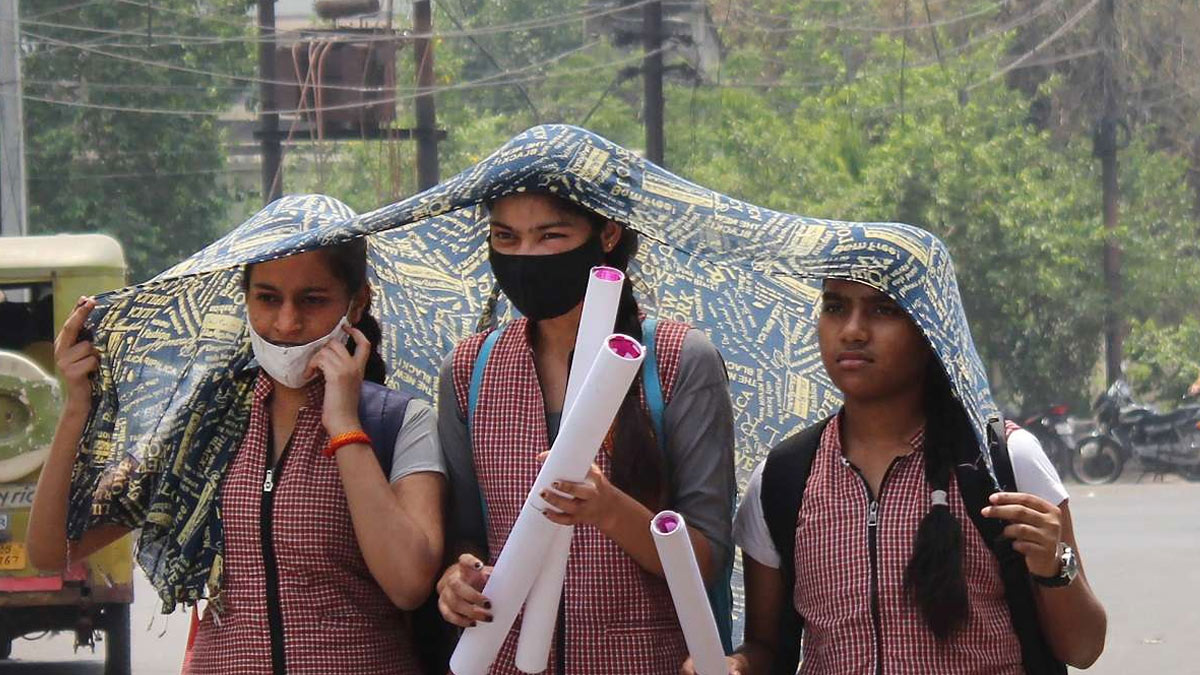
As North India battles a brutal heatwave, Delhi has found itself in the grip of soaring temperatures, with no immediate relief in sight. The India Meteorological Department (IMD) has forecasted an even sharper rise in mercury levels over the next few days, warning of a two to three degrees Celsius jump across Delhi-NCR, Punjab, Haryana, and Bihar. Responding to these alarming weather conditions, the Directorate of Education (DoE) has rolled out a new set of safety measures aimed at safeguarding students in the capital's schools.
Table of Content:-
Rising Temperatures Demand Immediate Action
The IMD’s latest bulletin has raised widespread concerns about the impact of extreme heat on vulnerable groups, especially school-going children. Recognising the urgent need for preventive steps, the DoE has expanded on its earlier advisories and issued fresh directives to schools to counter the risks posed by the intense summer.

The overarching focus of these guidelines is to ensure that students and staff alike are protected from prolonged exposure to extreme temperatures during school hours.
New Safety Protocols Rolled Out For Schools
The updated instructions stress a series of critical measures that every school must follow diligently:
Suspension of Outdoor Activities
All outdoor engagements, including sports and assemblies, are to be halted until weather conditions improve. In particular, schools have been asked to avoid hosting any gatherings during the peak afternoon hours when heat exposure is at its highest.
Classes To Remain Indoors
Conducting lessons in open-air settings has been strictly prohibited. This is aimed at minimizing direct sun exposure, ensuring that students remain in relatively cooler, protected environments.

Focus on Hydration
Hydration has been underscored as a key priority. Schools are instructed to maintain a steady supply of drinking water. Functional RO systems and water coolers must be checked regularly to guarantee their optimal working condition. Furthermore, water breaks are to be formally integrated into the daily school timetable to encourage students to drink water frequently.
Also Read: North Carolina Faces Deadliest Flu Season On Record with Over 500 Deaths
Ensuring Ventilation
Classrooms are expected to be well-ventilated and equipped with fully operational fans to maintain a bearable indoor temperature during the day.
Fire Safety Compliance
Reinforcing safety norms, the DoE has mandated the installation and maintenance of fire extinguishers in all school corridors, strictly adhering to fire department specifications.

Promoting Safe Commuting Practices
The new advisory also places emphasis on students’ safety during their commute to and from school. Schools have been directed to educate students about the importance of covering their heads with caps, scarves, or umbrellas to shield themselves from direct sunlight. Moreover, it has been stressed that students, staff, and parents should avoid spending time in open or sunlit areas during high-temperature hours.
Also Read: Delhi Sizzles: IMD Warns Of Scorching Heatwave As Temperatures Set To Cross 42 Degrees Celsius
Health Preparedness: A Top Priority
Acknowledging the serious risks of heatstroke and other heat-related illnesses, the DoE has instructed all schools to be fully prepared to handle medical emergencies. First aid kits must include Oral Rehydration Solution (ORS) packets, and any incidents of heat illness must be immediately reported to the nearest healthcare facility. The directive also reminds schools to continue maintaining high hygiene standards to prevent other summer-related health issues.
Monitoring and Enforcement
To ensure that the new measures are strictly followed, deputy directors of education at the district and zonal levels have been assigned the responsibility of monitoring compliance. Schools failing to implement the guidelines could face action, highlighting the government’s serious approach to student safety amid escalating heat concerns.
Bottomline
As Delhi gears up for what promises to be an exceptionally harsh summer, the proactive steps taken by the Directorate of Education offer a timely reminder of the importance of institutional preparedness during extreme weather events.
Also watch this video
How we keep this article up to date:
We work with experts and keep a close eye on the latest in health and wellness. Whenever there is a new research or helpful information, we update our articles with accurate and useful advice.
Current Version